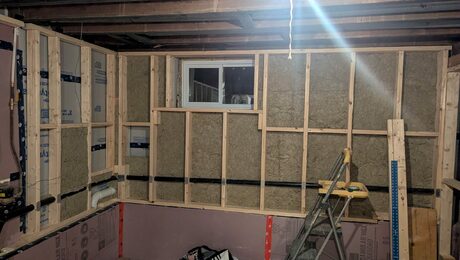How do I deduct my hand tools for my real estate practice?
Hey,
I am a real estate broker and I manage properties. In the process I have to do repairs on certain properties and have purchased hand tools for this purchase. I don’t want to have to capitalize and all that for a 3.99 screwdriver so how do I deduct these purchases.
Thanks!















Replies
What I do (for my programming "business") is record expendibles and low-cost tools (cables, eg) as simple expenses, and put down, eg, a $700 laptop as capital that is 100% depreciated the first year. TurboTax swallows this with no complaints, and the feds haven't raised an eyebrow (so far). And, as I read the rules, it's a perfectly legal way to do things.
With taxes, as with many things, the answer is it depends. Small tools, AT TIMES, can be expensed immediately in the year of purchase but then you have the case of a mechanic or carpenter who makes their living with their tools both large and small. A mechanic in particular can't just buy $500 worth of small tools year after year and write them off as expenses. These are capital investments for him and its much the same with carpenters.
As you said, an individual screwdriver or even a set of them at $70 or $80 bucks is an expensable item to most people who aren't strictly in the trade or business but if you go out and spend hundreds on small tools, they should be grouped together in the year of purchase and depreciated.
That being said, you can under current rules capitalize and elect to expense entirely some classes of assets as noted above. The effect in the current year is the same (unless you hit a limit on expensing assets). The impact down the road is different in that when you have assets, it is expected that you have some value to them when you dispose of them or close down the business. Very few people report a gain on the disposal of assets but there is one generally and the IRS can impose on if you are audited.
For example, most people take the standard mileage deduction on their trucks. A portion of that deduction is meant to cover depreciation. When you dispose of the that truck, you are supposed to figure out if you have a gain on the disposal of that depreciated asset. Same goes for your depreciation of a home office. When you sell your home, that 10% that you claimed as a home office is not subject to the $500,000 exemption of the gain on the sale of personal residence. Your 10% piece is commercial real estate and not subject to any exclusion and the depreciation you take is treated in a reduction of your cost basis.
If you buy a home for $200,000 (excluding land cost) and claim 10% as a home office and take depreciation $500 per year as depreciation ($200,000*10%/39 years = $512) for ten years and sell for $250,000. You have a $10,000 taxable long term gain.
$200,000 * 10% = $20,000 - $5,000 depreciation = $15,000....$250,000 sales price * 10% = $25,000
$25,000 - $15,000 = $10,000 gain on the sale of non-residential property.
Schedule C
Shop expense or misc hand tools.
Diane,
Would you ask a CPA how to run crown?
Even poor carpenters use CPA's.
KK
Deducting tools
All accountants (I am one) have a limit for deducting equipment. Mine is $400. Any single tool you buy for under $400 I deduct under small tools when I do your taxes. Other accountants have different limits. Some as high as $1,000.
If you are audited, you can always say to the auditor "OK, if I can't deduct my small tools, I want to take Sec 179 and deduct the full amount". Same difference.